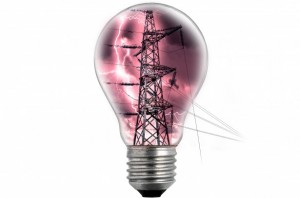Happy April and Happy Easter to those who celebrate. This month’s contributors create a sense of suspense, an uneasy creative tension throughout the issue.
Leonard Traumel’s lecture at the Chabot Space and Science Center in Oakland, California, reviewed here by Cristina Deptula, shows how leading physicists and cosmologists say that much of our universe is composed of ‘dark’ matter and energy, about which we know next to nothing. Poet Kira Burton urges us to embrace dissonance and confusion, while Neil Ellman’s poetry comments on paintings whose protagonists are perched between love and disaster, beauty and death.
San Francisco’s Fashion Tech Week reflected the influence of high technology, startup culture and environmental concerns on San Francisco’s emerging fashion aesthetic. Returning poet Tony Longshanks LeTigre describes social contradictions within the same city, where during the same week he can visit a renowned botanical conservatory for free and be harassed for napping briefly in a public park.
Sonny Zwierkowski’s poetry presents images that carry hints of unreality and disconnection: empty foreclosed homes, people who have trouble speaking to each other, a backyard view reflected in a pool of water. Joshua Dunlap’s poetry and prose vignettes tell stories with themes that have resonated with people throughout human history: striving for accomplishment versus living in the moment, fighting with others to prove oneself, contemplating mortality in the midst of vibrant life.
Russell Sivey presents a relationship where there is simultaneously passionate love and intense conflict.
Joan Beebe’s gentle, thoughtful pieces convey the earth’s natural renewal in spring and the rhythms of her childhood working on a family farm. Yi Wu’s poetry presents spring as fragile, almost tipsy and clumsy in how it clears away frost. Patrick Ward also contributes a pleasant piece about growing beans in his garden, and in later pieces encourages acceptance and respect for those who are somehow outside the mainstream, even those who seem scary at first glance. Ward also points to the existence of cruelty and evil in one of his pieces. Again, the complexity of life involves both good and bad, compassion and malice.
Ann Tinkham’s travel essay, like Patrick Ward’s work, comments on the lives of those who are different. She portrays a moment of tension in a family whose baby has Down’s syndrome and wonders if we can broaden our concept of ‘having it all’ to encompass ‘welcoming all.’ Shawn Nacona Stroud’s poetry conveys themes of family and loyalty, showing the beauty of building a history with loved ones. His final piece describes a near death experience, reminding us that we are all vulnerable. Laurie Byro’s work embraces all, love, memory, travel, grief, separation, culture, the foreign, prayers, through lush imagery.
Elizabeth Hughes reviews titles in her Book Periscope column where protagonists must make choices that determine their character and destiny. In K.C. Simos’ Ambrosia Chronicles, the characters within the adventure trilogy slowly grow into themselves, discovering their supernatural powers. In pastor Stephen White’s self help guide Saving Dr. Jekyll, Destroying Mr. Hyde, the author gives advice on how to live a moral life and overcome one’s addictions and bad habits. Characters and readers must choose to show courage and do the right thing even when faced with constant danger and pressure to give in to temptation.
Ryan Hodge, in his monthly Play/Write column, discusses how the most interesting video games encourage characters to solve problems in more creative ways than simply shooting as many enemies as possible. As one game demonstrates, sometimes peace can be even more complex and interesting to maintain than war.
In his lengthy poem about the provenance of a clock, Christopher Bernard reminds us that most of us are inextricably connected to others. Nigerian political columnist Ayokunle Adeleye urges his fellow citizens to turn away from selfishness in the social and political spheres. Laura Kaminski and David Subacchi advocate for tolerance and nonviolence in the wake of killings of civilians within Nigeria by terrorist group Boko Haram. Warwick Newnham presents the moral chaos still present in post-colonial Myanmar/Burma through a vignette about drunken sailors, lovers and fireworks.
There’s plenty of chaos in this issue, but also plenty of love and understanding and creativity. These pieces point to a way forward where we embrace complexity while acknowledging our pasts and accepting and honoring our connections with others.
Announcement from our partner Rui Carvalho, who has worked with poet Janine Canan and other writers here:
===================================
Now you can publish your e-book for Windows or Windows Phone, with your poetry, tales or novel, for only a donation of the following amounts:
a) annual donation 10 USD (maintenance);
b) price per page 1 USD;
c) authorize the inclusion of automatic ads in 10 % of the pages (at least and only if you aren’t happy with this).
For more information please contact Rui M. Publishing at:
ruiprcar@gmail.com
Best regards.
===================================

